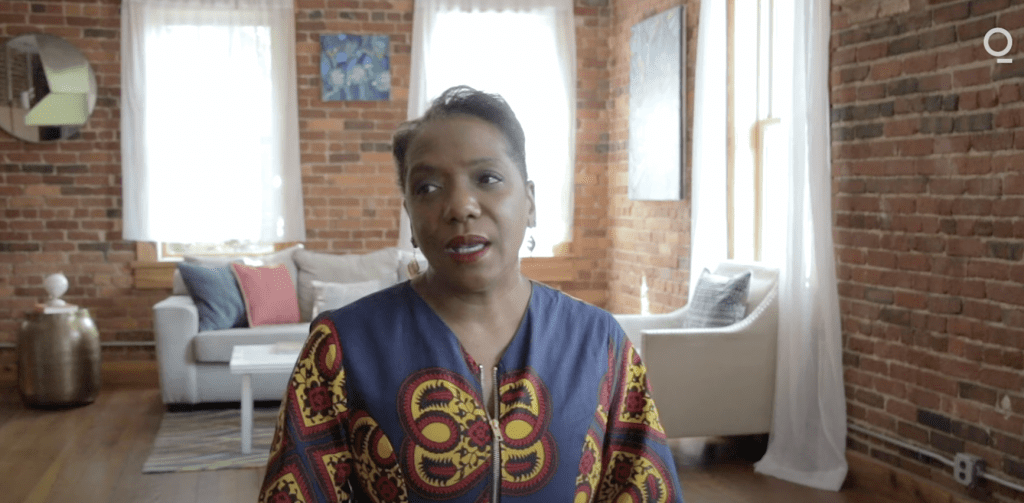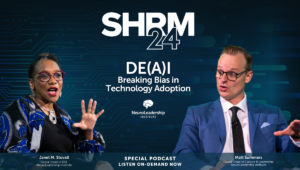From Bloomberg Quicktake
The above clip is from Bloomberg’s QuickTake series — it can also be found here—and this episode features two NLI’ers: co-founder and CEO David Rock, and senior client strategist Janet Stovall. The episode focuses on diversity and inclusion practices—namely why they’re often a stated objective in organizations, but end up falling flat. Emmanuel Acho, a former college (Texas) and pro linebacker and the founder of Uncomfortable Conversations with a Black Man, is also featured.
David’s portions of the Bloomberg piece are largely about how homogeneous teams feel more comfortable, but actually get a lot less done—which he wrote about in September 2016 in Harvard Business Review, as well. The follow-up to that piece, from November ‘16, says it even clearer: “Why diverse teams are smarter.”
When Janet is on-camera in this piece, she lets you in on a little NLI “secret sauce.” We have an internal expression of PHS, or:
- Priorities
- Habits
- Systems
Diversity and inclusion can be made better by thinking along these lines. First: determine that it’s a real priority (as opposed to lip service). Then, figure out what habits you need to embed in your employees for diversity to be a priority, a goal, and an advantage. What systems do you have in place that are preventing those habits from forming? Fix those systems. In this case, it might be blind resume review, or the elimination of partition dependence bias. (That’s a fancy way of saying “random sorting of candidates.”)
Why should you take our word on these topics? At the Neuroleadership Institute, we have a suite of diversity and inclusion behavior change solutions, which include GROW, DECIDE, INCLUDE, VOICE, SELECT, and the newest entrant, ALLY.
Our weighted NPS score for GROW, which is an approach to growth mindset and challenging situations that serves as a very strong foundation for DEI efforts, is 36. For DECIDE, it’s 19.82. And for INCLUDE, it’s 16.38. Those three products form a core of our DEI approach with clients.
NPS is a limited metric as well, so we internally created a Behavior Change Pulse (BCP) metric, which helps clients see that the habits are being sustained. In the case of GROW, for example, the core question is:
How many times in the last week have you noticed yourself having a fixed mindset and shifted to a growth mindset?
Our weighted BCP for GROW, meaning this behavior being displayed 1-3 times/week or more, is 88.29%. NPS can be indicative of many things, including the generic post-training questions of “Did you like the facilitator?” and/or “Did you like the materials?” But BCP shows whether the behaviors of the training or product are sticking within the organization. That’s more important. We have a great track record on other DEI products, too: the BCP for INCLUDE, for example, is 88.79% off a question about using SCARF Principles to foster inclusion. The BCP for VOICE is 88.86%, and the question of participants addresses our SEEDS Model.
You can also take a look at all our posts about diversity and inclusion.
If you’re on a DEI journey of your own right now, let’s talk and see how we can help.






